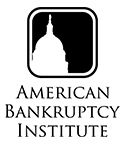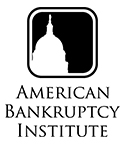Creditor committees use valuation reports in a variety of ways, and it is important for the lawyer or financial advisor to help the committee understand how to read and evaluate a valuation report.
Unsecured Trade Creditors Committee
Committees
An emerging strategy many hedge and private equity funds are pursuing is known as the “loan-to-own” investment. In this type of investment, a fund’s investors acquire debt and sometimes certain amounts of equity or management control, such as voting power or board seats, from a lender of a distressed company.
May a creditor’s claim be disallowed simply because he or she failed to provide supporting documentation in violation of Rule 3001 of the Federal Rules of Bankruptcy Procedure? The answer depends on which jurisdiction the creditor is pursuing its claim in, and courts are currently sharply divided on the issue.
Unsecured trade creditors in mid- to large-sized chapter 11 cases are frequently targets of distressed-debt traders looking to buy unsecured claims. These traders make their money in a variety of ways, principally on the assumption that the claims they buy today will be worth more later either in the distressed-trade market or upon plan distribution.
The Tenth Circuit in Southwest Food Distributors, LLC, 561 F.3d 1106 (10th Cir. 2009), affirmed the denial of the proposed retention of “national” counsel by the committee of unsecured creditors. “While the right to select counsel of one’s own choice is an undeniable right afforded to participants in bankruptcy, that right is not without boundaries.
As several U.S. automakers teeter on the brink of collapse, the prospect of bankruptcy reorganization has become a present-day reality for two of the largest automakers in the U.S. Reorganization would involve plant closures, brand elimination, layoffs, union concessions, reduced dealer networks, asset sales and creditor compromise.
The enactment of the Bankruptcy Abuse Prevention and Consumer Protection Act of 2005 (BAPCPA) brought sweeping changes to the Bankruptcy Code, but perhaps none more important to most unsecured trade creditors than a single word changed in 11 U.S.C. §547(c)(2).
In an effort to protect suppliers who sell goods in the days leading up to a customer's bankruptcy, Congress has, via §503(b)(9) of the Bankruptcy Code, carved out special treatment for claims made by creditors who sell and deliver goods to a debtor during the 20 days before a debtor's filing.
Last June, the Supreme Court decided the case of Florida Department of Revenue v. Piccadilly Cafeterias Inc., which dealt with a disputed tax exemption on an asset sale. Section 1146(a) of the Bankruptcy Code provides a stamp-tax exemption for any asset transferred under a plan confirmed under chapter 11.
An emerging strategy many hedge and private equity funds are pursuing is known as the "loan to own" investment. In this type of investment, a fund's investors acquire debt, and sometimes certain amounts of equity or management control, such as voting power or board seats, from a lender of a distressed company.
Co-Chair
Lowenstein Sandler LLP
New York, NY
(646) 414-6886
Co-Chair
Cleary Gottlieb Steen & Hamilton LLP
New York, NY
(212) 225-3341
Communications Manager
Potter Anderson & Corroon LLP
Wilmington, DE
(302) 984-6058
Education Director
Akin Gump Strauss Hauer & Feld LLP
New York, NY
(212) 872-7453
Membership Relations Director
Frost Brown Todd LLC
Cincinnati, OH
(513) 651-6842
Newsletter Editor
Jackson Kelly PLLC
Lexington, KY
(859) 806-6756
Special Projects Leader
Lowenstein Sandler LLP
Roseland, NJ
(973) 597-2500







![Photo of Deborah L. Thorne [1]](https://abi-org-corp.s3.amazonaws.com/committee/Authors/Thorne-Deb_0.jpg)





